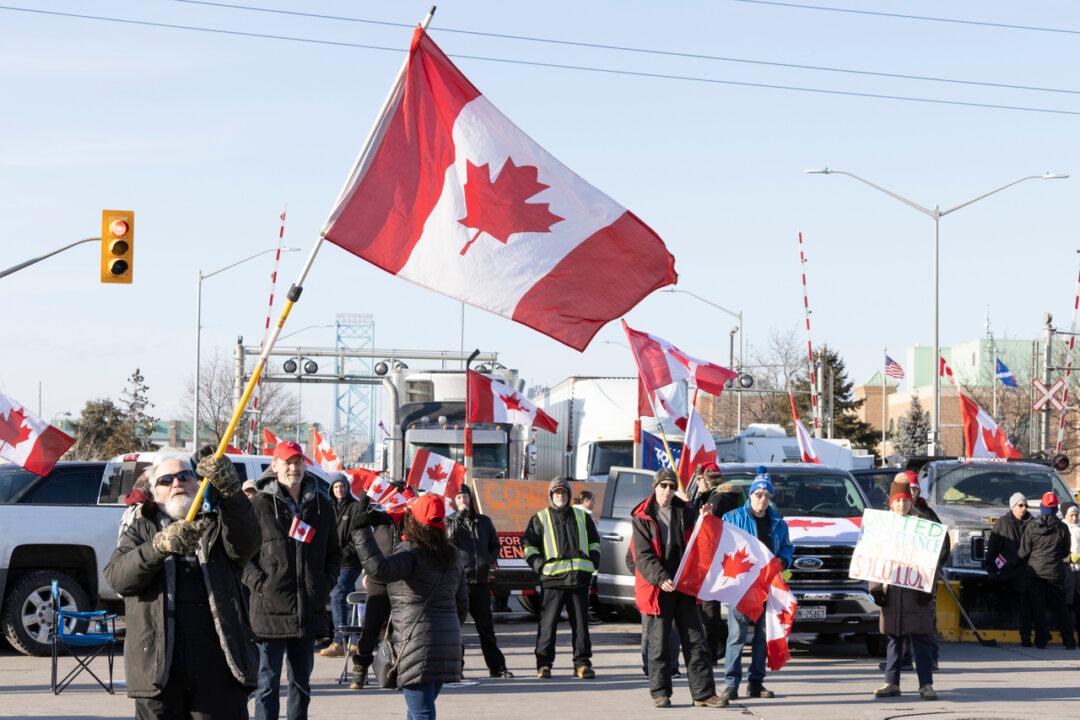Prime Minister Justin Trudeau told Ontario Premier Doug Ford on Feb. 9 that additional legal authorities were not needed to clear the Ambassador Bridge blockade in Windsor, a few days before his government invoked the Emergencies Act.
“First of all, they’re not a legal protest. They’re occupying a municipal street and are not legally parked. You shouldn’t need more tools – legal tools – they are barricading the ON economy and doing millions of damage a day and harming people’s lives,” Trudeau told Ford according to a transcript of the call entered as evidence in the Emergencies Act inquiry on Nov. 8.





